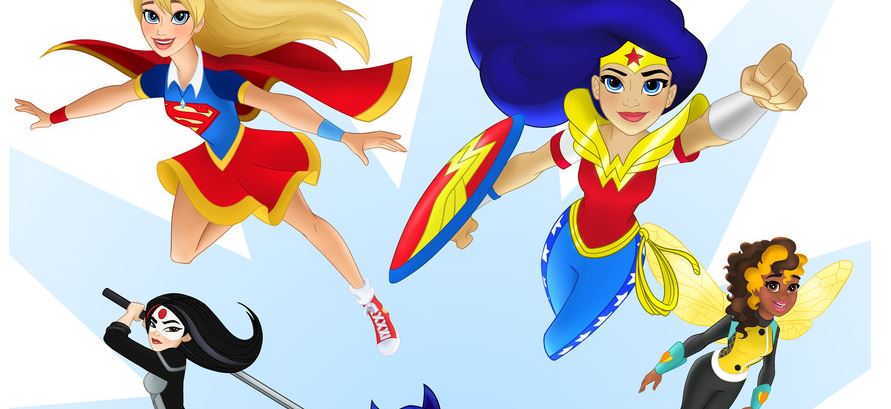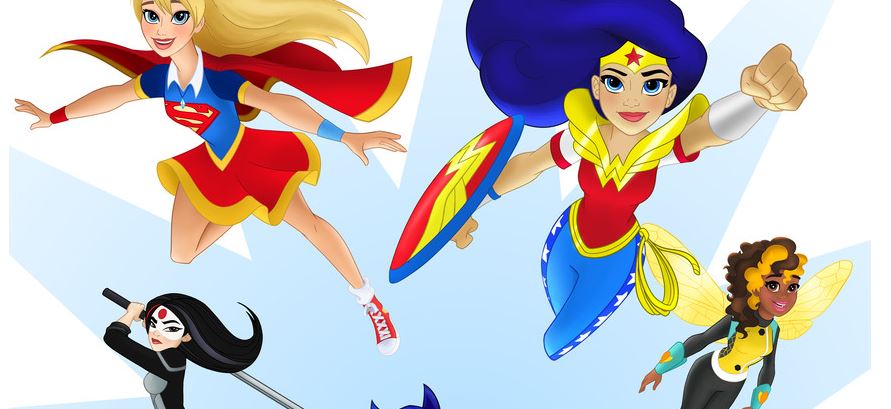I agree wholeheartedly: a comic book series featuring young and tween girls should be read by boys, and they won’t read it – possibly even know it exists because parents and teachers will censor it from them – if it reeks of “just for girls.” Why? Because at an appallingly casual level boys are discouraged from engaging in anything “for girls,” while girls are expected to engage in – and empathize with – everything. From the youngest age we indoctrinate boys to see girls as Other, Not People, Incomprehensible – creatures that boys can’t empathize with.

One of the many sentiments you’ll find at the original by Wendig:
I don’t want DC or the toy companies to cater to my boy. I just don’t want him excluded from learning about and dealing with girls. I want society to expect him to actually learn about girls and be allowed to like them — not as romantic targets later in life, but as like, awesome ass-kicking complicated equals. As real people who are among him rather than separate from him.
DC Comics making comics about girls isn’t the problem.
DC Comics telling us those comics are “just for girls” is.
As someone who writes in a niche that is designed specifically for a certain kind of reader (lesbian fiction) I am aware of how important it is to celebrate and single out oppressed groups. This is the classic debate about “lesbian fiction” versus “fiction that happens to be about lesbians.” There’s no right or wrong as the writers have different goals and hope to reach different audiences that want different reading experiences.
The only wrong is telling any reader they’re excluded from reading. I write for the lesbian reader, first and foremost. Anyone can read my books, but they might not completely understand all the nuances of the sub-culture that I try to validate and have no need to explain to my core audience. At its heart that is the biggest difference between “lesbian fiction” and “fiction that happens to be about lesbians” – the depth to which the sub-culture is present and explained for the reader.
So I understand the need and why of DC’s approach, but like Wendig, I think they’ve got it wrong. As I commented at the blog:
I really hope DC revises their marketing campaign. This is superhero land and every possible kid should feel okay about reading it. Someone hasn’t learned to substitute in words for race and religion and see how that sounds to the ear.
Would they really launch a marketing campaign that said “just for Christians” or “just for Asians”? As soon as you read it that way, you hear the exclusionary tone. There are better ways to word it that still celebrate the core market for a project without turning off the rest of the world.

